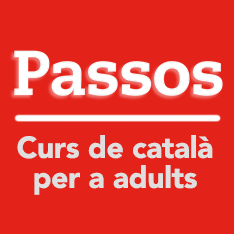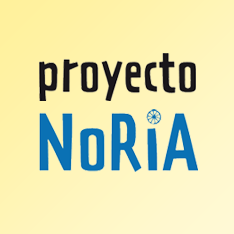Referencias bibliográficas
- Agut, S. (2000). Análisis de necesidades de competencias en directivos de empresas turísticas. El papel de la formación. (Tesis Doctoral). Universitat de València y Universitat Jaume I, Valencia.
- Agut, S., and Grau, R. (2002). Managerial competency needs and training requests: The case of the Spanish tourist industry. Human Resource Development Quarterly, 13(1), 31-52.
Ala‐Mutka, K. (2011). Mapping Digital Competence: Towards a Conceptual Understanding. Luxemburgo: JRC-IPTS European Commission. Retrieve from http://ipts.jrc.ec.europa.eu/ publications/pub.cfm?id=4699
- Almerich, G.; Suárez-Rodríguez, J. M.; Belloch, C. y Bo, R. M. (2011). Las necesidades formativas del profesorado en TIC: perfiles formativos y elementos de complejidad. RELIEVE, 17(2), 1-28. Retrieve from http://www.uv.es/RELIEVE/v17n2/RELIEVEv17n2_1.htm
- Aranda, D., Sánchez-Navarro, J. y Tabernero, C. (2009). Jóvenes y ocio digital. Informe sobre el uso de herramientas digitales por parte de adolescentes en España. Barcelona: Universitat Oberta de Catalunya.
- Au, M. H., Liang, K., Liu, J. K., Lu, R., & Ning, J. (2018). Privacy-preserving personal data operation on mobile cloud-Chances and challenges over advanced persistent threat. Future Generation Computer Systems, 79, 337-349. https://doi.org/10.1016/j.future.2017.06.021
- Bozdogan, D. & Özen, R. (2014). Use of ICT Technologies and factors affecting pre-service ELT Teachers´ perceived ICT self-efficacy. TOJET: The Turkish Online Journal of Educational Technology, 13(2), 186-196.
- Cerezo Medina, A. (2016). Análisis de percepciones y necesidades formativas en tecnologías de la información y la comunicación en Turismo. El caso de Andalucía. (Tesis Doctoral). Universidad de Málaga, Málaga.
- Chen, J.V., Ross, W.H., & Yang, H.H. (2011). Personality and Motivational Factors Predicting Internet Abuse at Work. Cyberpsychology: Journal of Psychosocial Research on Cyberspace, 5(1), article 1. Retrieve from http://cyberpsychology.eu/view.php?cisloclanku=2011060601&article=1
- Engen, B. K., Giæver, T. H., & Mifsud, L. (2015). Guidelines and regulations for teaching digital competence in schools and teacher education: A weak link? Nordic Journal of Digital Literacy, 2, 69-82.
- Erişti, B. & Akbulut, Y. (2018). Reactions to cyberbullying among high school and university students. Social Science Journal. https://doi.org/10.1016/j.soscij.2018.06.002
- Ferreira, R. R., and Abbad, G. (2013). Training needs assessment: where we are and where we should go. BAR. Brazilian Administration Review, 10(1), 77-99. doi: 10.1590/S1807-76922013000100006
- Ferreira, R. R., and Abbad, G. da S. (2014). Avaliação de necessidades de treinamento no trabalho: ensaio de um método prospectivo. Revista Psicología, 14(1), 1-17.
- García-Valcárcel, A. y Hernández, A. (2013). Recursos tecnológicos para la enseñanza e innovación educativa. Madrid: Síntesis.
- Gkioulos, V., Wangen, G., & Katsikas, S. K. (2017). User modelling validation over the security awareness of digital natives. Future Internet, 9(3). https://doi.org/10.3390/fi9030032
- Hernández, R., Fernández-Collado, C. y Baptista, P. (2010). Metodología de la investigación. España: Mc Graw Hill Interamericana.
- Iqbal, M. Z., & Khan, R. A. (2011). The growing concept and uses of training needs assessment: A review with proposed model. Journal of European Industrial Training, 35(5), 439-466. doi: 10.1108/03090591111138017
- Janssen, J. & Stoyanov, S. (2012). Online Consultation of Experts’ Views on Digital Competence. JCR Technical reports. Joint Research Center European Commission. Retrieve from http://ipts.jrc.ec.europa.eu/publications/pub.cfm?id
- Ley Orgánica 3/2018, de 5 de diciembre, de Protección de Datos Personales y garantía de los derechos digitales. Boletín Oficial del Estado, 6 de diciembre de 2018, núm. 294, pp. 119788- 119857. [consultado el 15 de diciembre de 2018]. Disponible en: https://www.boe.es/boe/dias/2018/12/06/pdfs/BOE-A-2018-16673.pdf
- Llorens, S. (2011). Detección de necesidades formativas: Una clasificación de instrumentos. Jornades de Foment de la Investigació. Recuperado de https://ldiazvi.webs.ull.es/detnecfor.pdf
- Macaulay, P. J. R., Betts, L. R., Stiller, J., & Kellezi, B. (2018). Perceptions and responses towards cyberbullying: A systematic review of teachers in the education system. Aggression and Violent Behavior, 43, 1-12. https://doi.org/10.1016/j.avb.2018.08.004
- Ministerio de Educación, Cultura y Deporte (2017). Marco Común de Competencia Digital Docente. Madrid: INTEF: Instituto Nacional de Tecnologías Educativas y de Formación del Profesorado.
- Perrenoud. (2004). 10 nuevas competencias para enseñar. Barcelona: Graó.
- Picardo Joao, O., Balmore Pacheco, R., y Escobar Baños, J. C. (2004). Diccionario Enciclopedico de Ciencias de la Educacion. San Salvador: El Salvador. C.A.: Centro de Investigación Educativa, Colegio García Flamenco.
- Pozos Pérez, K. (2015). Evaluación de necesidades de formación contínua en competencia digital del profesorado universitario mexicano para la sociedad del conocimiento. (Tesis Doctoral). Universitat Autónoma, Barcelona. Recuperado de https://ddd.uab.cat/pub/tesis/2016/hdl_10803_382466/kvpp1de2.pdf
- Prendes, M. P., y Gutiérrez, I. (2013). Competencias tecnológicas del profesorado en las universidades españolas. Revista de Educación, 361. doi:10-4438/1988-592X-RE-2011-361-140
- Redmond, P., Lock, J. V., & Smart, V. (2018). Pre-service teachers’ perspectives of cyberbullying. Computers and Education, 119, 1-13. https://doi.org/10.1016/j.compedu.2017.12.004
- Romansky, R. (2014). Social media and personal data protection. International Journal on Information Technologies & Security, 4, 65-79.
- Rosmaini, E., Kusumasari, T. F., Lubis, M., & Lubis, A. R. (2018). Study to the current protection of personal data in the educational sector in Indonesia. Journal of Physics: Conference Series, 978(1). https://doi.org/10.1088/1742-6596/978/1/012037
- TALIS (2014), OCDE. Talis 2013. Estudio Internacional sobre la Enseñanza y el Aprendizaje. Informe Español. Madrid. Ministerio de Educación, Cultura y Deporte. Recuperado de https://www.oecd.org/education/school/Spain-talis-publicaciones-sep2014_es.pdf
- Shapley, K.; Sheehan, D., Maloney, C., & Caranikas-Walker, F. (2010). Effects of the Technology Immersion on Teachers' Growth in Technology Competency, Ideology and Practices. Educational Computing Research, 42 (1), 1-33.
- Suárez, J. M., Almerich, G., Gargallo, B. y Aliaga, F. M. (2013). Las competencias del profesorado en tic: Estructura básica. Educación XX1, 16(1), 39-62. doi:10.5944/educXX1.16.1.716
- UNESCO (2008). Estándares de competencia en TIC para docentes. Recuperado de http://www.eduteka.org/pdfdir/UNESCOEstandaresDocentes.pdf
- UNESCO (2011). Alfabetización mediática e informacional. Currículum para profesores. Recuperado de http://unesdoc.unesco.org/images/0021/002160/216099s.pdf










